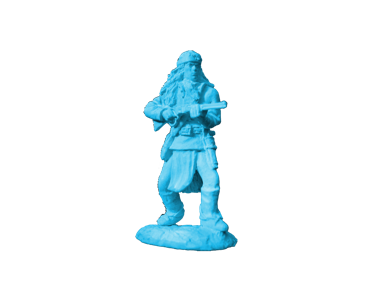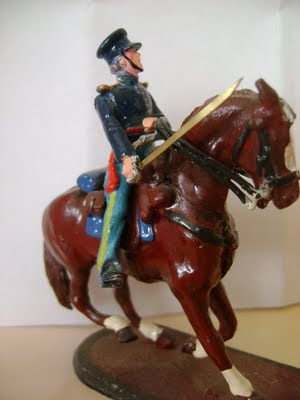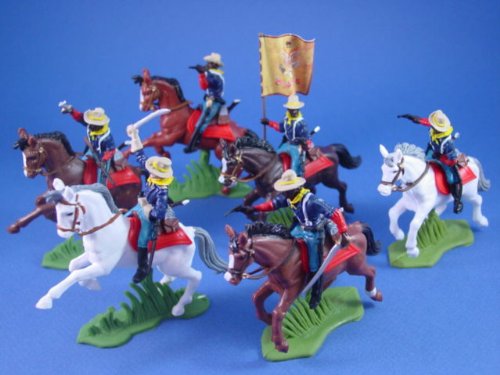 New Hope Design
New Hope DesignThe film revolves around the court-martial of 1st Sgt. Braxton Rutledge (Strode), a "Buffalo Soldier" of the 9th U.S. Cavalry. His defense is handled by Lt. Tom Cantrell (Hunter), Rutledge's troop officer.  The story is told through a series of flashbacks, expanding the testimony of witnesses as they describe the events following the murder of Rutledge's Commanding Officer, Major Dabney, and the rape and murder of Dabney's daughter, for which Rutledge is the accused.
The story is told through a series of flashbacks, expanding the testimony of witnesses as they describe the events following the murder of Rutledge's Commanding Officer, Major Dabney, and the rape and murder of Dabney's daughter, for which Rutledge is the accused.
 The story is told through a series of flashbacks, expanding the testimony of witnesses as they describe the events following the murder of Rutledge's Commanding Officer, Major Dabney, and the rape and murder of Dabney's daughter, for which Rutledge is the accused.
The story is told through a series of flashbacks, expanding the testimony of witnesses as they describe the events following the murder of Rutledge's Commanding Officer, Major Dabney, and the rape and murder of Dabney's daughter, for which Rutledge is the accused.
Circumstantial evidence suggests that the first sergeant raped and murdered the girl and then killed his commanding officer. Worse still, Rutledge deserts after the killings. Ultimately, he is tracked down arrested by Lt. Cantrell.  At one point, Rutledge escapes from captivity during an Indian raid, but later, he voluntarily returns to warn his fellow cavalrymen that they are about to face an ambush, thus saving the troop.
At one point, Rutledge escapes from captivity during an Indian raid, but later, he voluntarily returns to warn his fellow cavalrymen that they are about to face an ambush, thus saving the troop.  He then is then brought back in to face the charges and the prejudices of an all-white military court.
He then is then brought back in to face the charges and the prejudices of an all-white military court.
 At one point, Rutledge escapes from captivity during an Indian raid, but later, he voluntarily returns to warn his fellow cavalrymen that they are about to face an ambush, thus saving the troop.
At one point, Rutledge escapes from captivity during an Indian raid, but later, he voluntarily returns to warn his fellow cavalrymen that they are about to face an ambush, thus saving the troop.  He then is then brought back in to face the charges and the prejudices of an all-white military court.
He then is then brought back in to face the charges and the prejudices of an all-white military court.
Eventually he is found not guilty of the rape and murder of the girl when a local white man breaks down under questioning to admit that he raped the girl.
[edit] CastJeffrey Hunter as 1st Lt. Tom Cantrell, 9th Cavalry (counsel for the defense)
Constance Towers as Mary Beecher

Billie Burke as Mrs. Cordelia Fosgate
Woody Strode as First Sergeant Braxton Rutledge, 9th Cavalry
Juano Hernández as Sgt. Matthew Luke Skidmore, 9th Cavalry

Willis Bouchey as Lt. Col. Otis Fosgate, 9th Cavalry (president of the court-martial)
Carleton Young as Capt. Shattuck, 14th Infantry (prosecutor)
Judson Pratt as 2nd Lt. Mulqueen, 9th Cavalry (court-martial board member

Ford has never really been one to go for utter realism, and indeed “Sergeant Rutledge” has some of those exciting shootouts, or some of those hollow performances (Jeffrey Hunter and Constance Towers, who got the top two billings as Rutledge’s defense counsel Cantrell and Cantrell’s love interest Mary, leave a lot to be desired), but “Sergeant Rutledge” lacks realism for different reasons than those.
Some images both astounding and surreal give a particularly bizarre feel to the proceedings, make the flashbacks and the courtroom scenes themselves dreamlike, and make Rutledge into something of a mythic folk hero, complete with heroic poses set to epic ballads (Cap-tain BUFFALO!). 

The way Rutledge is portrayed as larger-than-life and mythic in some instances is downright peculiar, but even then that just contributes even more to this intangibly bizarre world where past and present intermingle and nothing’s as it seems.
Scenes like Rutledge and Mary holing themselves up in a rail station against Apaches on a stormy night are incredibly atmospheric and suspenseful (this was the mastrerpiece of this film that wasn't up to Ford's best) as we often hear nothing but the wind outside, and Rutledge, who we were only just introduced to moments before in a startling entrance, might be friend or might be foe, but is for sure mysterious and dare I say, exotic, especially thrust into this situation with the helpless white damsel Mary. When a scene like that is placed next to a courtroom scene taking place long after – a courtroom scene that dissolves into surreal silhouettes and darkness to signify a flashback – past and present are equally surreal, and an easy-to-follow beginning-to-end chronological story structure becomes irrelevant. 

That’s what I really liked about “Sergeant Rutledge”, how we’re presented with the aftermath of the crime in snippets of flashback from unreliable narrators – the flashbacks are rather straightforward, but the bias of the witnesses – including Rutledge himself – telling their segments of the story add some juice to it. We never see the crime itself, so the flashbacks via witness testimony are more of a character-builder (or legend-builder) than anything, as we see Mary, Cantrell and an imprisoned Rutledge and their men, one of the first all-black cavalry following the Civil War, make the trek across Monument Valley (where else?  )
)  with Apaches at their heels. It’s really tense stuff, a few good men against the elements in a desperate situation in the middle of nowhere. There’s a nice camaraderie between the men, like they’re family, and we get to like Rutledge, even if the glorifying of the character into an epic folk hero goes a little over the top. He’s heroic and duty-bound, even if he’s not exactly forthcoming about what happened at that crime scene, and Woody Strode’s fantastic as the titular sergeant.
with Apaches at their heels. It’s really tense stuff, a few good men against the elements in a desperate situation in the middle of nowhere. There’s a nice camaraderie between the men, like they’re family, and we get to like Rutledge, even if the glorifying of the character into an epic folk hero goes a little over the top. He’s heroic and duty-bound, even if he’s not exactly forthcoming about what happened at that crime scene, and Woody Strode’s fantastic as the titular sergeant. His obstinacy in refusing to pander to a biased legal system by proclaiming his innocence or surrendering quietly leads to some speeches on the plight of the black man in a white world that’s an important theme, sure, but one that’s shoved in our face a little too much and a little too politicized a la the lectured-to-us plight of the workers in “The Grapes of Wrath.” But boy does Strode deliver those otherwise-manipulative speeches well – his Rutledge is a man of honor, a barely-convincing face of stoicism concealing rage at the system that’s put him in a trial for his life, and it all leads to a teary-eyed breakdown on the stand that just about had ME in tears. This is a fine western and courtroom drama with an innovative chronological structure and enthralling mystery – s
His obstinacy in refusing to pander to a biased legal system by proclaiming his innocence or surrendering quietly leads to some speeches on the plight of the black man in a white world that’s an important theme, sure, but one that’s shoved in our face a little too much and a little too politicized a la the lectured-to-us plight of the workers in “The Grapes of Wrath.” But boy does Strode deliver those otherwise-manipulative speeches well – his Rutledge is a man of honor, a barely-convincing face of stoicism concealing rage at the system that’s put him in a trial for his life, and it all leads to a teary-eyed breakdown on the stand that just about had ME in tears. This is a fine western and courtroom drama with an innovative chronological structure and enthralling mystery – s o enthralling that the cobbled-together, 11th hour revelation can be forgiven, as can Jeffrey Hunter’s not-so-gripping job as the do-no-wrong lieutenant and counsel and friend of Rutledge. Even some out-of-left-field comic relief involving the grumpy curmudgeon of a president of the court-martial and his fellow board members provides a welcome respite from the downer that is Rutledge’s unenviable situation (though the president’s INSANELY over-the-top and irritating wife doesn’t fare nearly as well – she really needed to die). But at the center of it all is Rutledge, who probably could’ve been fleshed out more, sure, but what good would that have been when every aspect of him – his innocence or guilt, his motives in trying to escape and then turn around and help his regiment at the turn of a dime, his almost frighteningly stoic/blank face, his near-mythic heroism, is so obviously supposed to be an enigma?
o enthralling that the cobbled-together, 11th hour revelation can be forgiven, as can Jeffrey Hunter’s not-so-gripping job as the do-no-wrong lieutenant and counsel and friend of Rutledge. Even some out-of-left-field comic relief involving the grumpy curmudgeon of a president of the court-martial and his fellow board members provides a welcome respite from the downer that is Rutledge’s unenviable situation (though the president’s INSANELY over-the-top and irritating wife doesn’t fare nearly as well – she really needed to die). But at the center of it all is Rutledge, who probably could’ve been fleshed out more, sure, but what good would that have been when every aspect of him – his innocence or guilt, his motives in trying to escape and then turn around and help his regiment at the turn of a dime, his almost frighteningly stoic/blank face, his near-mythic heroism, is so obviously supposed to be an enigma?
 with Apaches at their heels. It’s really tense stuff, a few good men against the elements in a desperate situation in the middle of nowhere. There’s a nice camaraderie between the men, like they’re family, and we get to like Rutledge, even if the glorifying of the character into an epic folk hero goes a little over the top. He’s heroic and duty-bound, even if he’s not exactly forthcoming about what happened at that crime scene, and Woody Strode’s fantastic as the titular sergeant.
with Apaches at their heels. It’s really tense stuff, a few good men against the elements in a desperate situation in the middle of nowhere. There’s a nice camaraderie between the men, like they’re family, and we get to like Rutledge, even if the glorifying of the character into an epic folk hero goes a little over the top. He’s heroic and duty-bound, even if he’s not exactly forthcoming about what happened at that crime scene, and Woody Strode’s fantastic as the titular sergeant. o enthralling that the cobbled-together, 11th hour revelation can be forgiven, as can Jeffrey Hunter’s not-so-gripping job as the do-no-wrong lieutenant and counsel and friend of Rutledge. Even some out-of-left-field comic relief involving the grumpy curmudgeon of a president of the court-martial and his fellow board members provides a welcome respite from the downer that is Rutledge’s unenviable situation (though the president’s INSANELY over-the-top and irritating wife doesn’t fare nearly as well – she really needed to die). But at the center of it all is Rutledge, who probably could’ve been fleshed out more, sure, but what good would that have been when every aspect of him – his innocence or guilt, his motives in trying to escape and then turn around and help his regiment at the turn of a dime, his almost frighteningly stoic/blank face, his near-mythic heroism, is so obviously supposed to be an enigma?
o enthralling that the cobbled-together, 11th hour revelation can be forgiven, as can Jeffrey Hunter’s not-so-gripping job as the do-no-wrong lieutenant and counsel and friend of Rutledge. Even some out-of-left-field comic relief involving the grumpy curmudgeon of a president of the court-martial and his fellow board members provides a welcome respite from the downer that is Rutledge’s unenviable situation (though the president’s INSANELY over-the-top and irritating wife doesn’t fare nearly as well – she really needed to die). But at the center of it all is Rutledge, who probably could’ve been fleshed out more, sure, but what good would that have been when every aspect of him – his innocence or guilt, his motives in trying to escape and then turn around and help his regiment at the turn of a dime, his almost frighteningly stoic/blank face, his near-mythic heroism, is so obviously supposed to be an enigma?
No comments:
Post a Comment